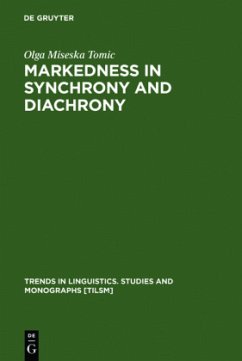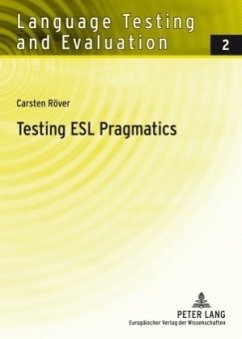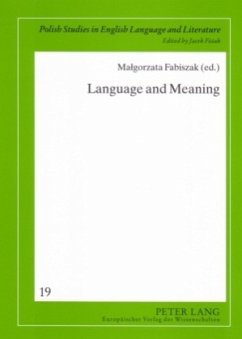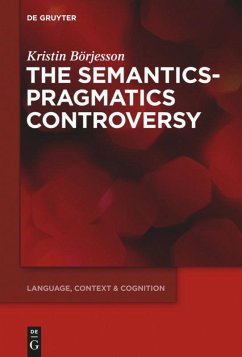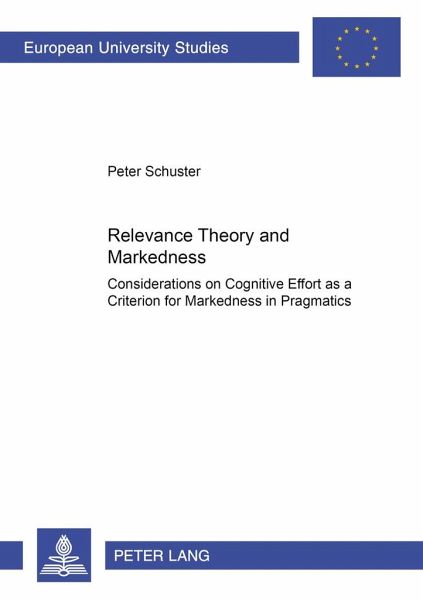
Relevance Theory meets Markedness
Considerations on Cognitive Effort as a Criterion for Markedness in Pragmatics
Versandkostenfrei!
Versandfertig in 6-10 Tagen
77,40 €
inkl. MwSt.

PAYBACK Punkte
0 °P sammeln!
Rising influence of cognitive sciences on linguistics has been observed recently. This work aims at pointing out which role cognitive effort may play in natural language processing. From a pragmatic perspective various approaches to a plausible definition of cognitive effort are presented. Some introductory sections to pragmatics lead to a discussion on relevance theory. Also, a variety of markedness concepts are introduced. These are examined in regard to their utility for the description of context understood as a psychological construct. Finally, a natural language processing model is used ...
Rising influence of cognitive sciences on linguistics has been observed recently. This work aims at pointing out which role cognitive effort may play in natural language processing. From a pragmatic perspective various approaches to a plausible definition of cognitive effort are presented. Some introductory sections to pragmatics lead to a discussion on relevance theory. Also, a variety of markedness concepts are introduced. These are examined in regard to their utility for the description of context understood as a psychological construct. Finally, a natural language processing model is used to describe cognitive effort in the light of divers learning models.






